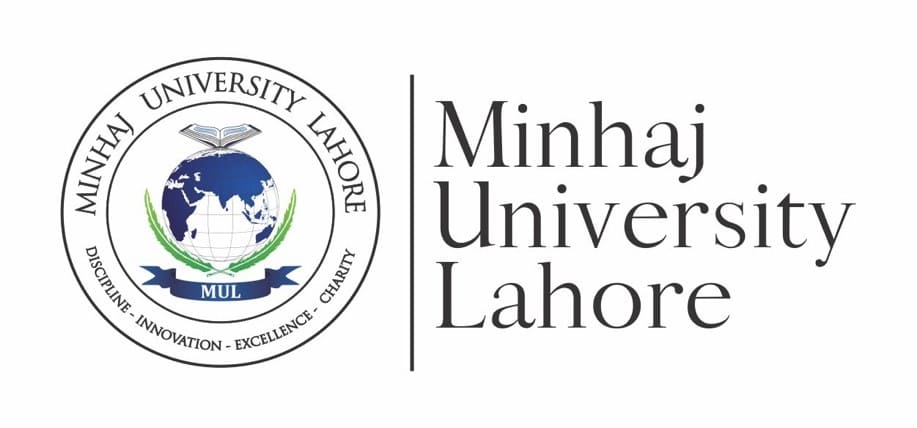Entrepreneurship in The Light of The Qur’an, Ḥadīth, And Iqbal’s Philosophy
DOI:
https://doi.org/10.58932/MULD0023Keywords:
Entrepreneurship, Islam, Qur’an, Ḥadīth, Allama Muhammad Iqbal, Business activitiesAbstract
This research examines the differences between Islamic and Western perspectives on entrepreneurship and linked it with Iqbal’s philosophy so that Muslim entrepreneurs can understand the significance of Islam's guiding principles and teachings as they forge ahead in their ventures. This research highlights all the values, principles, and teachings of Islam concerning entrepreneurship because, in today's dynamical changing world, every Muslim entrepreneur wants to be successful but doesn't value the founding principles. This research is divided into two sections: the first section explains the significance of business activity by citing verses from the Glorious Qur’an and Ḥadīth from the Holy Prophet (PBUH), while the second section uses the poetry of Allama Muhammad Iqbal to emphasize the characteristics and approach of successful business owners and the benefits of adhering to Islamic principles in the course of doing business. Iqbal employed unique words like ‘Khudi’ that are hard to describe and grasp. Khudi was explained differently by each scholar. This study used the concept of khudi as Perceived Entrepreneurial Self‐Efficacy and justify by western scholars of entrepreneurship.
References
Aamir, R. (2020). Praxix Of Pereniality: Emerson’s “Self Reliance” And Iqbal’s Concept Of ‘Khudi’. Iqbal Review, 61(2), 21.
Adebusuyi, A. S., & Adebusuyi, O. F. (2022). Ethnicity and entrepreneurial learning experiences as predictors of entrepreneurial self-efficacy and outcome expectations. Journal of Enterprising Communities: People and Places in the Global Economy.
Ananda, G. D., Basalamah, S., Alam, R., & Arifin, Z. (2022). The Influence of Self Efficacy, Islamic Leadership Style and Compensation on Subjective Well Being and Employee Performance. International Journal of Latest Research in Humanities and Social Science (IJLRHSS), 5(5), 144-161.
Aziz, F., & Badshah, S. N. (2021). An Analysis of the Iqbal’s Qur’anic Thoughts for Youth Education. Peshawar Islamicus, 12(1), 23-31.
Aziz, O., Shaaban, S., & Aziz, A. (2021). Role of Educational Institutions in Influencing Entrepreneurial Intentions: A Scoping Review. Audit and Accounting Review, 1(1), 30-60.
Bezzina, F. (2010). Characteristics of the Maltese entrepreneur. International journal of arts and sciences, 3(7), 292-312.
Bosma, N., Hill, S., Kelley, D., Guerrero, M., Schott, T., & Ionescu-Somers, A. (2021). GEM Global Entrepreneurship Monitor 2020/2021. GEM Global Entrepreneurship Monitor.
Carsrud, A. L. (2006). Commentary:“Are we family and are we treated as family? Nonfamily employees’ perceptions of justice in the family firm”: It all depends on perceptions of family, fairness, equity, and justice. Entrepreneurship Theory and Practice, 30(6), 855-860.
Dias, Á., Cascais, E., Pereira, L., Lopes da Costa, R., & Gonçalves, R. (2022). Lifestyle entrepreneurship innovation and self‐efficacy: Exploring the direct and indirect effects of marshaling. International Journal of Tourism Research.
Faizal, P. R. M., Ridhwan, A. A. M., & Kalsom, A. W. (2013). The entrepreneurs characteristic from al-Quran and al-Hadis. International Journal of Trade, Economics and Finance (IJTEF).
Habeeb, S., & Ahmad, N. (2018). Entrepreneurial Intention among students-A case study of Jamia Millia Islamia (Central University).
Khan, F., & Malik, K. (2021). Tarbiyat-e-Khudi: A Model of Self-Development from Poems of Muhammad Iqbal in Asrar-i-Khudi. Bahria Journal of Professional Psychology, 20(1), 14-26.
Khan, K. E. (2021). Chalking out Organizational Leader Traits from Poetic Work of Iqbal. International Journal of Business and Management Sciences, 2(4), 122-133.
Legohérel, P., Callot, P., Gallopel, K., & Peters, M. (2004). Personality characteristics, attitude toward risk, and decisional orientation of the small business entrepreneur: A study of hospitality managers. Journal of Hospitality & Tourism Research, 28(1), 109-120.
Mariana, D., Sjoraida, D. F., & Anwar, R. K. (2017). Islam and The Patterns of Entrepreneurship Education (A Study on Digital Media Industry Development in West Java, Indonesia).
Ramadani, V., Dana, L.-P., Ratten, V., & Tahiri, S. (2015a). The context of Islamic entrepreneurship and business: concept, principles and perspectives. International Journal of Business and Globalisation, 15(3), 244-261.
Ramadani, V., Dana, L.-P., Ratten, V., & Tahiri, S. (2015b). The context of Islamic entrepreneurship and business: Concept, principles and perspectives. International Journal of Business and Global, 15(3), 244-261.
Rauf, A., Abubakar, Y., Abrar, A., Gohar, M., Slesman, L., & Mitra, J. (2022). Islam, Entrepreneurship and Economic Development. Journal of Entrepreneurship and Innovation in Emerging Economies, 8(2), 270-273.
Razak, T. M. T. A., Hairi, N. A., Ab Rahman, N. A., Shamsuddin, Z., Jaafar, A. B. B., Rahim, H., & Sabri, M. (2022). The Concept of Islamic Entrepreneurship in Forming Influential Personality: A Personal Analysis of The Prophet Saw. International Journal of Early Childhood, 14(03).
Saheeh, I. (1997). The Quran (Arabic text with corresponding English meaning) 6× 4.5 inch (Arabic text with corresponding English meanings). In: Riyadh: Abulqasim Publishing.
Sarhan, L., & Ismail, N. (2022). Determinacy of Qalb Behavioral Traits Toward Inclusive Entrepreneurial Intention Among Youth.
Sieger, P., Raemy, L., Zellweger, T., Fueglistaller, U. & Hatak, I. (2021). Global Student Entrepreneurship 2021: Insights From 58 Countries. Retrieved from St.Gallen/Bern: KMU-HSG/IMU-U:
Supriyanto, S., Ghazali, M. B., Yanti, F., & Fauzi, F. (2022). Entrepreneurship Education Based on Islamic Work Ethic: Educational Management Review. Al-Tanzim: Jurnal Manajemen Pendidikan Islam, 6(1), 132-145.
Downloads
Published
How to Cite
Issue
Section
License
Copyright (c) 2024 TAHREEM HAYAT, DR. SYEDA SABA SHAHEEN, DR. SYED AFRAZ HASSAN GILLANI, HAFIZA UMAMA MASOOD

This work is licensed under a Creative Commons Attribution-NonCommercial 4.0 International License.









